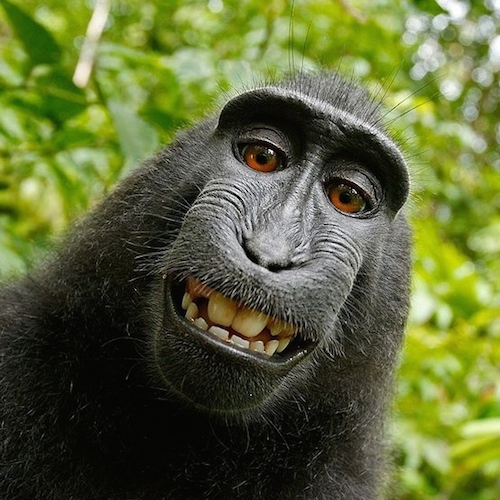 Culture & Ethics
Culture & Ethics
Monkeys Aren’t "Intellectual," Can’t Copyright

Several readers have sent me the story of the intellectual property dispute between Wikimedia and a photographer with whose camera a monkey took a "selfie."
The photographer claims a copyright, but the Wiki world says no since he didn’t actually take the photo. From the Washington Post story:
In an interview, Wikimedia Foundation’s Chief Communications Officer Katherine Maher said the organization is confident that the legal basis for denying Slater’s request is sound, because the person that takes the photo should own the copyright. But a person didn’t take this one.
"Monkeys don’t own copyrights," Maher said. "What we found is that U.S. copyright law says that works that originate from a non-human source can’t claim copyright."
My sympathies are with the photographer. Even though he didn’t snap the photo or intentionally set up the shot, he created the general circumstances under which it was taken.
But Wikimedia is absolutely correct that an animal can’t own a copyright (unless, I suppose, a human grants it in the same way dogs sometimes inherit for their support.) This is really a dispute about money, and I think, an anti-intellectual property value system among some within the Wiki crowd.
But let’s leave that aside and get to the bottom line: Animals can’t protect intellectual property because they can’t create it.
Animals are not intellectual. That isn’t the same thing as saying they aren’t intelligent. It means they are incapable of intentionally "creating." A spider’s web is a remarkable design, but it wasn’t "designed" by the spider. Creativity is one of the exceptional capacities of humans.
The monkey who took the photo wasn’t "taking" a photo. It didn’t know what a camera is.
In this sense, the disputed photo isn’t really a "selfie." That is something only humans can accomplish. Whether we should is another story.
Cross-posted at Human Exceptionalism.
Photo credit: David J. Slater/Wikipedia.
